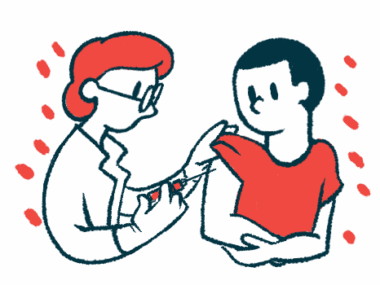The subtle, telltale signs that I’m having a rough day with NMOSD
Recognizing these clues enables my loved ones to provide support
Written by |

Living with neuromyelitis optica spectrum disorder (NMOSD) often means navigating a journey filled with both triumphs and challenges. While some days I feel that I’m managing the disease well, I quietly suffer on others.
For loved ones and caregivers, understanding the subtle signs that indicate a rough day for an NMOSD patient can make a world of difference in providing support and assistance. My family knows what to look for now, allowing them to read me like a book.
My love for driving and road trips started from a young age, so when I’m not interested in a drive, it’s a giveaway I’m not feeling well. Sometimes the feeling of pins and needles in my extremities is so uncomfortable that I’ll avoid a drive. Bumps in the road can feel like a personal form of torture.
I’ve always enjoyed being a social butterfly, so when I cancel plans, especially last minute, I’m broadcasting to everyone that today isn’t a great day. When I’m canceling on friends more frequently, that’s when it’s time to seek medical attention.
Another telltale sign is when I become less talkative. I can handle a certain amount of pain, but when I hit my threshold, I tend to withdraw into myself or seem less engaged in conversation.
NMOSD symptoms can include heightened sensitivity to touch or pain, making physical contact uncomfortable for patients during flare-ups. Normally, I’m not one for a lot of contact; I like my personal space and am a bit of a germaphobe. However, my closest loved ones still get a hug — unless, of course, I’m experiencing discomfort or pain.
On challenging days, NMOSD patients may move more cautiously and gingerly to avoid exacerbating symptoms. I take slower, deliberate steps or avoid certain movements altogether. On tough days I’ll use my accessible parking permit, which tells my family that I’m conserving what little energy I have. Visible changes in my gait or mobility also give away how I’m feeling physically.
Loved ones and caregivers of NMOSD patients often become acutely attuned to subtle changes in our condition. If you notice my husband being particularly vigilant or overprotective, it’s a sign I’m not feeling well. When you’ve been a couple for as long as we have, you develop your own language. Similar to communicating to your partner that you want to leave a party, NMOSD patients can subtly tell their close comrades when they’re hurting.
I’ve long understood that my condition doesn’t just affect me; it also affects those closest to me, which often fills me with guilt for the burden it places on my family. Consequently, I find it challenging to express openly that I’m having a difficult day.
Despite this reluctance, I find solace in knowing that I’m not facing NMOSD alone and that my family has become attuned to the telltale signs that I’m struggling. That unspoken understanding serves as the cornerstone of a robust support network, granting me a sense of dignity as I navigate life with this disease.
What are some telltale signs that you’re struggling with NMOSD symptoms? Please share in the comments below.
Note: Neuromyelitis News is strictly a news and information website about the disease. It does not provide medical advice, diagnosis, or treatment. This content is not intended to be a substitute for professional medical advice, diagnosis, or treatment. Always seek the advice of your physician or other qualified health providers with any questions you may have regarding a medical condition. Never disregard professional medical advice or delay in seeking it because of something you have read on this website. The opinions expressed in this column are not those of Neuromyelitis News or its parent company, Bionews, and are intended to spark discussion about issues pertaining to neuromyelitis optica spectrum disorder.







Leave a comment
Fill in the required fields to post. Your email address will not be published.